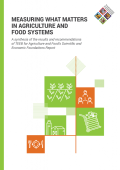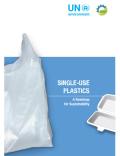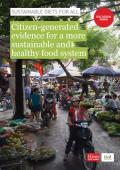This working paper was produced for the early stage of the UN Environment Inquiry to provide an initial overview of the areas where the financial sector can have an impact on moving the green economy forward and the extent to which green financial policy is already actively being practised.
Delivering the Green Economy through Financial Policy is focused on financial regulation and the instruments of financial policy that apply to the financial sector. The financial sector plays a valuable financial intermediation role and is the source of capital needed for economic growth, but in a market economy, capital allocations will be dictated by risk-return considerations in the real sector. The financial sector can react to real sector opportunities, but it generally cannot create such opportunities in any sustained manner. The paper maps out the financial regulatory landscape and lays out the functions that different Financial Initiatives fulfil. It looks at regulatory mechanisms that operate via financial markets to influence investment behaviour and concludes with some open questions that warrant discussion and further study.


Renewable power accounted for 70% of net additions to global power generating capacity in 2017, but global energy-related carbon dioxide emissions rose 1.4% in 2017, after three years of holding steady. The increase in carbon emissions was the result of robust global economic growth (of 3.7%), lower fossil fuel prices and weaker energy efficiency efforts.
This year’s Renewables 2018 Global Status Report (GSR) reveals two realities: one in which a revolution in the power sector is driving rapid change towards a renewable energy future, and another in which the overall transition is not advancing with the speed needed. While momentum in the power sector is positive, it will not on its own deliver the emissions reductions demanded by the Paris climate agreement or the aspirations of Sustainable Development Goal 7. The heating, cooling and transport sectors, which together account for about 80% of global total final energy demand, are lagging behind.

